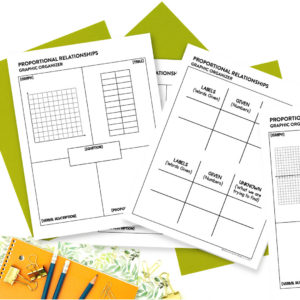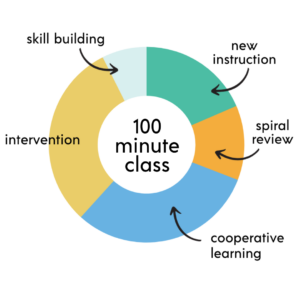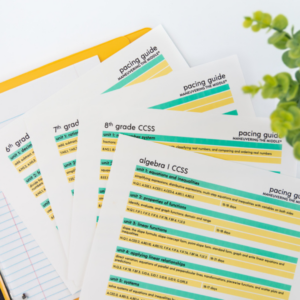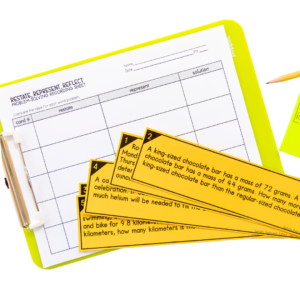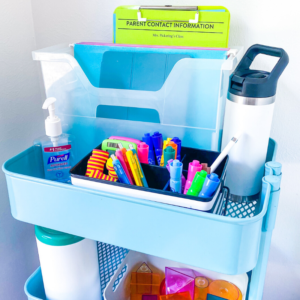Advisory or homeroom is a perfect place to build relationships with your students in a non-academic setting! It can also be the time that turns into chaos because you don’t have a plan for it. Homeroom is often the last thing I think about, but I have found that my school day and school year is so much more successful when I have taken the time to make the most of my homeroom. ...
Teaching Proportional Relationships
Proportional relationships are ingrained in our everyday life. While most students pick up on the process to solve fairly quickly, there is so much foundational, conceptual knowledge that we want to acknowledge and emphasize. Today, let’s examine how proportional relationships go far beyond just solving for a missing number and how to set a foundation for success in ...
Student-Centered Math Activities
Planning student-centered math activities takes work! There is the actual planning and creating that takes time, but then there is also the actual classroom time to squeeze the activities into. I have five 7 favorite activities that are fun and engaging, but also help scaffold the learning. I think that is why I love math so much; it can be broken down into smaller components. The ...
How To Structure a 100 Minute Class Period
Most math teachers would love a longer class period! I taught a 100 minute class one year, and it definitely had its pros and cons: Pros of a 100 Minute Class Period Cons of a 100 Minute Class Period Things to Consider Below is just one way to structure your 100 minute class period. Sometimes things do not go according to plan, but it is always a good idea to have a ...
Staying on Track with Your Scope and Sequence
As a teacher, getting behind in your scope and sequence can feel especially stressful. These tips will keep you on track so when it comes to test review time in the spring, you have covered all of your material, and you aren’t rushing to fit it all in and trying to review too! 1. Use a Scope and Sequence (grab ours!) If you fail to plan, you plan to fail. If you aren’t provided a ...
Using Tape Diagrams to Solve Problems
Welcome to Part 3 of our Problem Solving Strategy series! Today we are diving into helpful tape diagrams to solve problems. If you want to learn more, check out this book, Mathematize It!, that covers the topic of teaching how to solve word problems in much more detail. Be sure to read: Part 1: Three Word Problem Types to Teach | Part 2: Three Steps to Solving Word ...
3 Steps to Solving Word Problems
In order to be a successful math student, you have to persevere through various problems. This is a skill that can be taught and must be practiced. (Noelle recently presented an amazing math training - Practical Problem Solving Strategies - this summer, and I was truly amazed at just how much I learned. I will be breaking down the training into 3 blog posts over the course of ...
3 Types of Word Problems to Teach
Problem solving is a multifaceted process! While I’ve written about Math Problem Solving Strategies and How to Teach Word Problems and Problem Solving, there is still so much more to cover. Noelle presented an amazing math training this summer on Practical Problem Solving Strategies. I was truly amazed at just how much I learned. I will be breaking down the training into 3 blog posts ...
Solving 5 Classroom Interruptions
There are the classroom interruptions that you cannot control: fire drills, alternative bell schedules, and fill-in-the-blank with about a zillion other options. However, there are so many interruptions that you can minimize to maximize the effectiveness of your classroom time. Every minute counts! Let’s chat today about common classroom interruptions and some ways to combat these ...
Tips for Teaching from a Cart
Are you a nomadic teacher? No single classroom to call your own, but instead, you travel from classroom to classroom teaching from a cart? TIPS for Teaching FROM A CART The idea is simple. Instead of rotating hundreds of students, rotate the teachers. This makes sense from a logistical standpoint, but it does add 16 more things for teachers to think about on a daily basis. (Did ...

